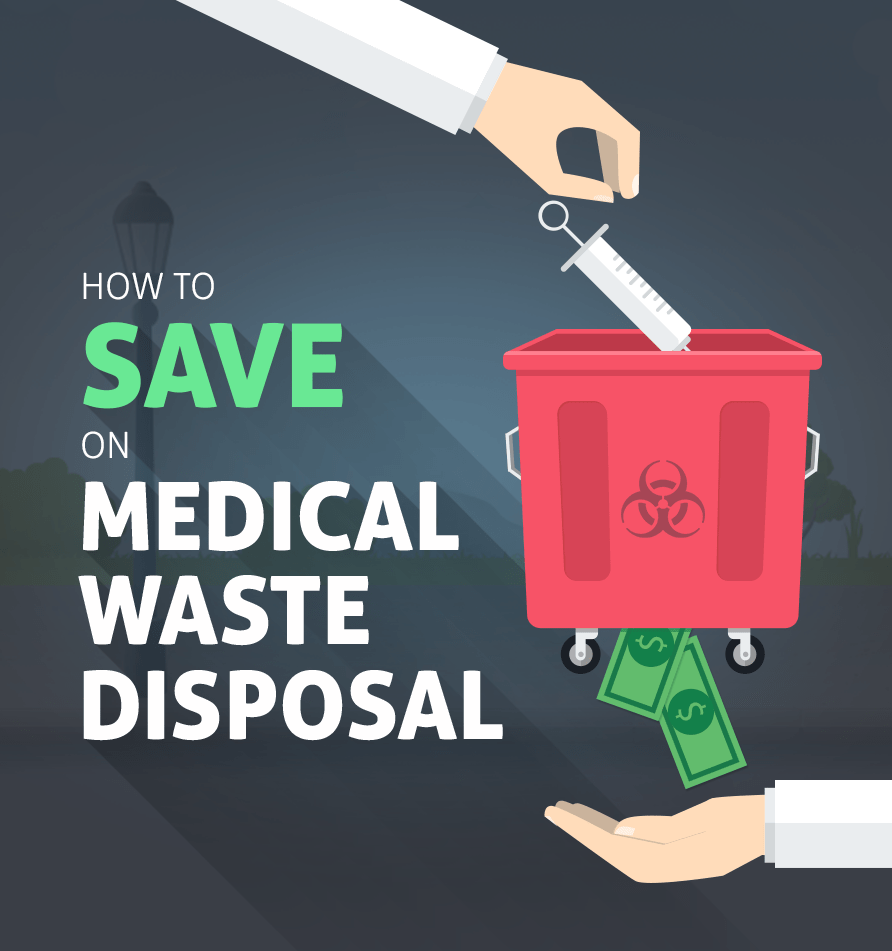Accountable Solutions: Understanding Medical Waste Disposal Provider
In the world of healthcare, the correct disposal of medical waste is a critical aspect that demands mindful factor to consider. As medical care centers produce different types of waste that require specific handling, recognizing the subtleties of clinical waste disposal services is vital.
Value of Correct Clinical Garbage Disposal
Appropriate clinical waste disposal is vital in preserving a sanitary and secure environment within medical care facilities. In medical care settings, numerous kinds of waste are created daily, including transmittable products, sharps, ran out medicines, and chemical substances.

Kinds Of Clinical Waste
Within health care centers, a diverse array of waste materials identified as medical waste is created, each requiring particular handling and disposal approaches. Clinical waste can be categorized right into a number of kinds based on its qualities and potential risks. Infectious waste, such as made use of needles, swabs, and societies, positions a considerable threat of spreading infections and need to be very carefully dealt with to stop any type of possible harm. Unsafe waste consists of chemicals, drugs, and particular materials that might be responsive or toxic. These materials call for specialized disposal approaches to lessen environmental influence and make sure safety and security. Pathological waste, which consists of cells, organs, and body components, necessitates correct disposal to respect the dignity of the dead and avoid any type of biohazards. Pharmaceutical waste, like run out drugs and radiation treatment medicines, should be disposed of correctly to avoid misuse or environmental contamination. Recognizing the numerous kinds of medical waste is critical for medical care facilities to apply efficient waste management methods and safeguard public health and wellness and the setting (Medical Waste Disposal Services).
Regulations and Compliance
Health care facilities should adhere to rigorous policies regarding the handling and disposal of clinical waste to make certain compliance with legal demands and safeguard public wellness. These regulations are implemented to avoid the spread of infections, protect the setting, and maintain the safety of health care employees and the public. Various governing bodies, such as the Epa (EPA), the Occupational Security and Wellness Administration (OSHA), and the Department of Transport (DOT), have specific guidelines that health care centers have to follow.
To adhere to these guidelines, medical care facilities should properly segregate, store, transportation, and get rid of various kinds of medical waste. This includes sharps waste, transmittable waste, contaminated materials, and pharmaceutical waste, each requiring specific managing procedures. Facilities must also keep precise records of waste generation and disposal to demonstrate conformity during assessments.
Non-compliance with clinical waste regulations can lead to severe penalties, penalties, and damages to the facility's online reputation. It is vital for healthcare centers to stay informed regarding the newest guidelines and carry out robust compliance measures to protect public health and the environment.
Benefits of Professional Disposal Services
Involving expert clinical waste disposal services uses healthcare centers a effective and dependable solution for handling harmful materials. These services employ qualified professionals who are skilled in managing various kinds of clinical waste, making sure proper segregation, disposal, packaging, and transport. Medical Waste Disposal Services.
Moreover, specialist disposal services utilize advanced devices and adhere to sector ideal practices to minimize environmental influence and lower the threat of contamination. This not just promotes a much safer workplace for healthcare team yet additionally adds to general public health and wellness and security. Furthermore, outsourcing medical garbage disposal can result in set you back financial savings over time by eliminating the demand for internal monitoring and disposal systems.
Lasting Practices in Health Care

One key sustainable method in medical care is waste decrease. By carrying out strategies to reduce unnecessary product packaging, single-use things, and general waste generation, medical care centers can significantly look at this website reduce the quantity of waste sent out to land fills or incineration. In addition, reusing programs for products like plastic, glass, and paper can additionally minimize the ecological influence of healthcare procedures.

Final Thought
To conclude, appropriate medical garbage disposal is critical in preserving a secure and healthy and balanced environment for both medical care workers and the public. Understanding the various kinds of medical waste, following laws and conformity standards, and utilizing expert disposal solutions are necessary steps in responsible waste management. By taking on sustainable techniques in medical care centers, we can minimize ecological impact and ensure the health of all people associated with the medical care market.
As medical care facilities create various kinds of waste that call for customized handling, recognizing the subtleties of medical waste disposal solutions is critical.Within medical care facilities, a varied range of waste materials classified as clinical waste is created, each requiring specific handling and disposal methods. Understanding the different kinds of medical waste is critical for medical care centers to execute effective waste administration techniques and protect public health and the setting.
By carrying out techniques to reduce unnecessary packaging, single-use products, and overall waste generation, medical care centers can dramatically reduce the amount of waste sent to garbage dumps or incineration. Understanding the different kinds of medical waste, complying with policies and compliance requirements, and making use of useful site professional disposal services are vital steps in accountable waste management.